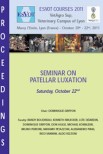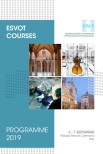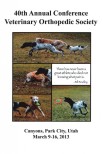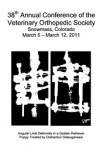Observations A 12 year old cat was presented for anaesthesia to remove a mandibular squamous cell carcinoma. After intramuscular premedication with dexmedetomidine and methadone, anaesthesia was induced with alfaxalone, administered intravenously (IV) to effect, and maintained with isoflurane vaporized in oxygen, following oro-tracheal intubation. Approximately 5 minutes after performing a mandibular nerve block with 1.16 mg kg(-1) of bupivacaine, the cat developed severe cardiovascular depression. Anaesthetic delivery was discontinued and cardiopulmonary resuscitation instituted. Drug administration consisted of atropine (0.02 mg kg(-1) IV, repeated three times), followed by atipamezole (0.08 mg kg(-1) IV). Dobutamine was subsequently administered (1 μg kg(-1) minute(-1) IV) until cardiovascular performance was considered satisfactory. During recovery from anaesthesia the cat exhibited seizure-like activity, which was controlled by a variable rate infusion of propofol. The cat made an uneventful recovery following discontinuation of propofol infusion, without residual neurological signs, and the surgical procedure was postponed. Conclusions This clinical report describes successful management of cardiovascular and neurological complications following a mandibular nerve block with bupivacaine in a cat. Although treatment was successful, the role played by the drugs administered during resuscitation remains uncertain.
Severe cardiovascular depression in a cat following a mandibular nerve block with bupivacaine.
Date
2011 Nov
Journal
Vet Anaesth Analg
Volume
38
Number
6
Pages
614-8









